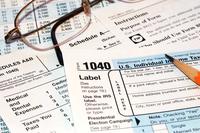Under the federal Affordable Care Act, if you don't have a qualified health insurance plan, you must qualify for an exemption to avoid paying a tax penalty.
The penalty in 2015 is 2% of household income or $325 per adult and $162.50 per child under 18 -- whichever is higher. The penalty maxes out at the national average premium for a bronze plan under the first scenario, or a maximum of $975 per family in the second.
That number is going up, says Bob Lord, product management director of health solutions for USAA.
"If you aren't paying for health insurance coverage, you'll be paying the same amount in penalties as enrolling in the average bronze plan, at some point in time," Lord says.
There are only two ways to avoid paying a penalty.
You can qualify for an exemption or have a qualified health insurance plan -- whether through a job, Medicaid, Medicare, Children's Health Insurance Program (CHIP), TRICARE, COBRA, private insurance or through a state or the federal exchange under the Affordable Care Act.
Short-term major medical is not a qualified plan and does not waive the penalty, Lord adds.
You may be eligible for an exemption if:
** Health plans cost more than 8.05% of your household income, or if your income is less than the required level to file income tax.
** You would have qualified for Medicaid if your state had expanded Medicaid under the ACA.
** You are a member of a federally recognized tribe, a religious sect that objects to insurance or a health care sharing ministry.
** You are incarcerated.
** You are a U.S. citizen living abroad or meet certain noncitizen requirements.
Additionally, you could qualify for a hardship exemption if, under recent circumstances, you:
** Faced foreclosure or eviction or filed for bankruptcy in the past six months.
** Were homeless.
** Experienced the death of a close family member.
** Experienced domestic violence.
** Incurred substantial debt from medical expenses in the past two years.
** Suffered serious property damage by fire, flood or other disaster.
Eligible for one of those exemptions? Then you must fill out forms, some online and some on paper, and file them with your federal income tax return. Go to healthcare.gov's exemption page for more information on how and when to file for exemptions.









